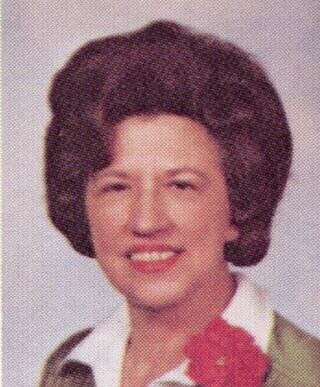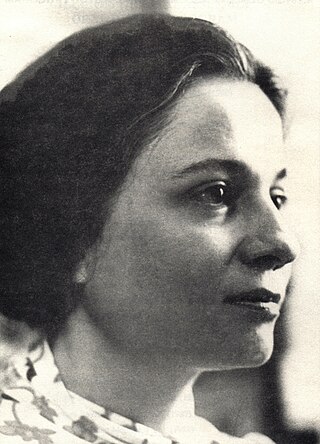
The March for the Equal Rights Amendment took place on July 9, 1978 in Washington, DC. Over 100,000 people marched for ratification of the Equal Rights Amendment.

The March for the Equal Rights Amendment took place on July 9, 1978 in Washington, DC. Over 100,000 people marched for ratification of the Equal Rights Amendment.
There were 35 notable speakers at the march organized by the National Organization for Women. [1] [2]
Many prominent women's rights activists participated in this march including Gloria Steinem, Pauli Murray and Betty Friedan. [3] [4]
The amendment proposed equal rights for women, and was first introduced to Congress in 1923, finally gaining Congressional approval in 1972. [5] Once Congress had approved the amendment, ratification by the states was requested and the typical 7-year time limit for ratification by two-thirds of the states was set in motion. [6] The march was held to convince legislators that the period allowed for ratification should be extended beyond the deadline, which would occur on 29 March 1979. [7] Protesters were successful in getting the House to approve an extension to 1982 in August, 1978 and the Senate to grant approval of the same time frame by a vote of 60 to 36 in October 1978. It was the first time that a proposed amendment to the Constitution had ever had its ratification period extended. [8] [9] Since 1982, extension of the ratification has been reintroduced in every legislative session. [10]
The amendment still has not been ratified by all of the states to become a part of the Constitution of the United States. [11] [12]

The Nineteenth Amendment to the United States Constitution prohibits the United States and its states from denying the right to vote to citizens of the United States on the basis of sex, in effect recognizing the right of women to vote. The amendment was the culmination of a decades-long movement for women's suffrage in the United States, at both the state and national levels, and was part of the worldwide movement towards women's suffrage and part of the wider women's rights movement. The first women's suffrage amendment was introduced in Congress in 1878. However, a suffrage amendment did not pass the House of Representatives until May 21, 1919, which was quickly followed by the Senate, on June 4, 1919. It was then submitted to the states for ratification, achieving the requisite 36 ratifications to secure adoption, and thereby went into effect, on August 18, 1920. The Nineteenth Amendment's adoption was certified on August 26, 1920.

The Equal Rights Amendment (ERA) is a proposed amendment to the United States Constitution that would explicitly prohibit sex discrimination. It is not currently a part of the Constitution, though its ratification status has long been debated. It was written by Alice Paul and Crystal Eastman and first introduced in Congress in December 1923. With the rise of the women's movement in the United States during the 1960s, the ERA garnered increasing support, and, after being reintroduced by Representative Martha Griffiths in 1971, it was approved by the U.S. House of Representatives that year, and by the U.S. Senate in 1972, thus submitting the ERA to the state legislatures for ratification, as provided by Article Five of the United States Constitution. A seven-year, 1979, deadline was included with the legislation by Congress. A simple majority of Congress later extended the deadline to 1982. Both deadlines passed with the ERA three short of the necessary 38 states for ratification. Even so, there are ongoing efforts to ratify the amendment.

The Twenty-seventh Amendment to the United States Constitution states that any law that increases or decreases the salary of members of Congress may take effect only after the next election of the House of Representatives has occurred. It is the most recently adopted amendment but was one of the first proposed.

Sonia Ann Johnson, is an American feminist activist and writer. She was an outspoken supporter of the Equal Rights Amendment (ERA) and in the late 1970s was publicly critical of the position of the Church of Jesus Christ of Latter-day Saints, of which she was a member, against the proposed amendment. She was eventually excommunicated from the church for her activities. She went on to publish several radical feminist books, ran for president in 1984, and become a popular feminist speaker.

The District of Columbia Voting Rights Amendment was a proposed amendment to the United States Constitution that would have given the District of Columbia full representation in the United States Congress, full representation in the Electoral College system, and full participation in the process by which the Constitution is amended. It would have also repealed the Twenty-third Amendment, which granted the District of Columbia the same number of electoral votes as that of the least populous state, but gave it no role in contingent elections.

Birch Evans Bayh Jr. was an American politician. A member of the Democratic Party, he served as a member of United States Senate from 1963 to 1981. He was first elected to office in 1954, when he won election to the Indiana House of Representatives; in 1958, he was elected Speaker, the youngest person to hold that office in the state's history. In 1962, he ran for the U.S. Senate, narrowly defeating incumbent Republican Homer E. Capehart. Shortly after entering the Senate, he became Chairman of the United States Senate Judiciary Subcommittee on the Constitution, and in that role authored two constitutional amendments: the Twenty-fifth—which establishes procedures for an orderly transition of power in the case of the death, disability, or resignation of the President of the United States—and the Twenty-sixth, which lowered the voting age to 18 throughout the United States. He is the first person since James Madison and only non–Founding Father to have authored more than one constitutional amendment. Bayh also led unsuccessful efforts to ratify the Equal Rights Amendment and eliminate the United States Electoral College.

The National Woman's Party (NWP) was an American women's political organization formed in 1916 to fight for women's suffrage. After achieving this goal with the 1920 adoption of the Nineteenth Amendment to the United States Constitution, the NWP advocated for other issues including the Equal Rights Amendment. The most prominent leader of the National Woman's Party was Alice Paul, and its most notable event was the 1917–1919 Silent Sentinels vigil outside the gates of the White House.

Eleanor Marie Smeal is an American women's rights activist. She is the president and a cofounder of the Feminist Majority Foundation and has served as president of the National Organization for Women for three terms, in addition to her work as an activist, grassroots organizer, lobbyist, and political analyst.
Eagle Forum is a conservative advocacy group in the United States founded by Phyllis Schlafly in 1972. Focused on social issues, it is socially conservative and describes itself as pro-family. Critics have described it as anti-feminist, anti-LGBT, ultraconservative, and far-right. A 501(c)(4) organization, it is affiliated with the Eagle Forum Education and Legal Defense Fund, which is a 501(c)(3) nonprofit, and the Eagle Forum Political Action Committee (PAC). It organizes the'Eagle Council, an annual training for conservative speakers.

The National Organization for Women (NOW) is an American feminist organization. Founded in 1966, it is legally a 501(c)(4) social welfare organization. The organization consists of 550 chapters in all 50 U.S. states and in Washington, D.C. It is the largest feminist organization in the United States with around 500,000 members. NOW is regarded as one of the main liberal feminist organizations in the US, and primarily lobbies for gender equality within the existing political system. NOW campaigns for constitutional equality, economic justice, reproductive rights, LGBTQIA+ rights and racial justice, and against violence against women.

Marigene Gertrude Valiquette was an American politician who was a member of the Ohio General Assembly. She served 24 consecutive years in the state legislature, first as a member of the Ohio House of Representatives, beginning in 1963, and subsequently as a member of the Ohio State Senate, from 1969 until 1986.

Kathleen Marie Kelly is an American activist, human rights lawyer, and Mormon feminist who founded Ordain Women, an organization advocating for the ordination of women to the priesthood in the Church of Jesus Christ of Latter-day Saints. Kelly was excommunicated from the church in 2014. She is also a nationally known advocate for ratification of the Equal Rights Amendment (ERA) and abortion access.

Women's suffrage was established in the United States on a full or partial basis by various towns, counties, states, and territories during the latter decades of the 19th century and early part of the 20th century. As women received the right to vote in some places, they began running for public office and gaining positions as school board members, county clerks, state legislators, judges, and, in the case of Jeannette Rankin, as a member of Congress.

Flora Crater (1914–2009) was a Virginia politician, lobbyist, and activist. Her causes included women's rights, school integration, collective bargaining, and minority rights. She most famously led the Virginia lobby for the Equal Rights Amendment and was the first president of the Virginia chapter of the National Organization for Women. She was the first woman to run for statewide office in Virginia.

Susan Catania was an American politician who served as a Republican member of the Illinois House of Representatives from 1973 to 1983. She was involved in women's rights issues, and she led the unsuccessful effort to get the federal Equal Rights Amendment (ERA) ratified by the Illinois General Assembly. Catania also served as chairperson of the Illinois Commission on the Status of Women. A representative from Chicago, she was described as a liberal, feminist, and maverick member of the Republican legislative caucus.
This is a listing of noteworthy historical events relating to the international women's movement which occurred in 1919.

The Equality Amendment is a proposed Amendment to the U.S. Constitution by legal scholars Kimberlé Crenshaw and Catharine MacKinnon. It was first proposed in December 2019 in the Yale Law Journal. This proposal is an updated version of the Equal Rights Amendment written by Alice Paul from the National Women's Party, which was first proposed in 1923 and has not been ratified. This is different from the 2021 Equality Act, which has been proposed in Congress to prohibit discrimination based on biological sex, gender identity or sexual orientation.
Joan M. Martin is a Protestant feminist theologian. Martin has been politically active with a number of different feminist causes and is notable for her 1978 congressional testimony on behalf of the Equal Rights Amendment.
The Equal Rights Amendment (ERA) was first proposed in 1923 by suffragist Alice Paul as an amendment to the United States Constitution to prohibit discrimination on the basis of sex. It was passed by the House of Representatives in 1971 and the Senate in 1972. To be certified, 38 states were required to ratify it, and Congress implemented a seven-year deadline for the ratification to take place. The deadline was extended to 1982, but only 35 of the 38 states ratified it. It was then ratified by Nevada in 2017, Illinois in 2018, and Virginia in 2020.